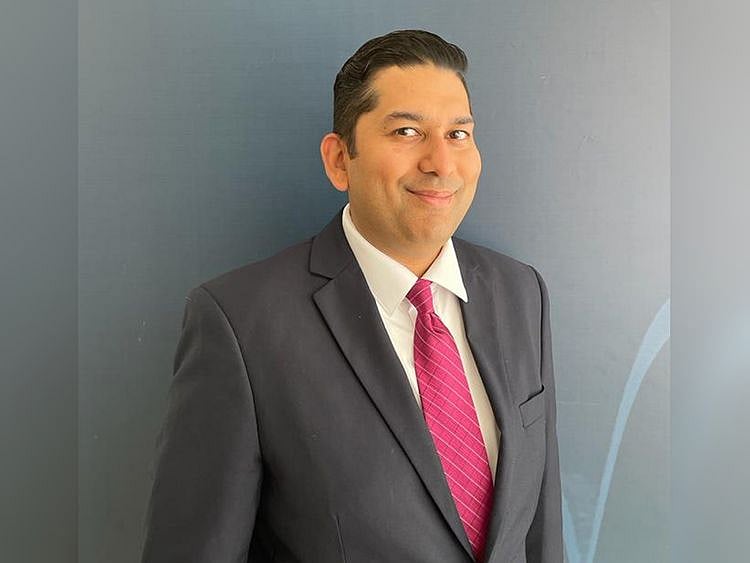How a Dubai schoolboy became a global space scientist
Now based in Canada, Dr Asrar is keen on pioneering a space medicine department in the UAE

Dubai: The recent return of Emirati astronaut Sultan Al Neyadi from the longest Arab space mission has inspired a former Dubai resident to contribute to the UAE’s space sector in a specialised field.
Dr Farhan M. Asrar, who is now based in Canada, is a medical doctor and academic aspiring to be part of pioneering a space medicine and health department in the UAE.
Currently, he is the co-chair of the Department of Human Performance in Space (Space Medicine and Life Sciences) for the renowned Space Studies Programme by the International Space University. This is an internationally recognised programme that various countries bid to host, and this year, the 35th annual programme is taking place in Brazil.
Dr Asrar, along with his team, has also presented findings of their studies at a United Nations committee meeting and participated in a UN workshop on space technology for socio-economic benefits.
UAE connection
The scientist told Gulf News in an online interview that he desires to give back to the country where he was born and raised - the UAE.
“I was born in Dubai and grew up in Dubai and Sharjah. I completed high school in the UAE and later, during my medical school, I also took some medical electives in hospitals in the UAE,” he said. His parents lived in the UAE for almost 30 years.
Dr Asrar said his interest in space medicine was sparked during his medical specialisation when he discovered the potential of incorporating his passion for space into his career.
Scope for space medicine
As the UAE aims to explore deep space, there is now more scope for expanding the expertise in space technology including space medicine, he pointed out.
“Space technology offers numerous potential benefits in various areas, including environmental health, air pollution monitoring, and infectious disease outbreaks.”
He recounted how his paper on the role of space in pandemics got published in Nature Medicine, one of the world’s leading medical journals, after the content “surprised the editors”. He said the anecdote highlighted a “knowledge gap” in the field and the need for increased awareness and education about the health-related benefits of space technology.
He pointed out that many innovations on Earth, such as GPS technology and remote medicine, have their origins in the space sector.
“Additionally, space plays a vital role in monitoring, mitigating, and preventing infectious disease outbreaks, which aligns with the UAE’s humanitarian assistance efforts. Monitoring climate change and environmental pollutants can guide medical recommendations,” he said.
By nurturing future leaders in space medicine and STEM (science, technology, engineering, maths), Dr Asrar believes the UAE can become a global player in advancing research and development in this field.
“Through education, collaboration, and innovation, the UAE can be a leader in space medicine and contribute to global advancements in healthcare and public health.”
To achieve his vision, Dr Asrar plans to collaborate with local space agencies, universities, and space experts in the UAE and beyond. With experience in collaborating with astronauts,and experts from organisations like the UN, NASA, European Space Agency, and the Canadian Space Agency, Dr Asrar said he has also worked with researchers, faculty, and professionals from the UAE, Saudi Arabia, and the GCC.
‘Homecoming’
When asked about his affinity for the UAE, Dr Asrar described it as a “homecoming”.
“The UAE is always like a home for me. Every time I come there, it feels like I never left. It’s a beautiful cosmopolitan country. We’ve had family friends I grew up with who are still there. One thing that I’ve admired about space is that space brings the world together, no matter your background, cast, profession, or field, and, our differences and what we all bring to the table make us stronger. That’s the same I feel about Dubai and the UAE, bringing so many different cultures, expertise, and fields together and that is what makes the UAE special and gives it its strength.”
Congratulating the UAE for taking significant strides in the space world within a short span of time, he said: “With its satellites, Moon-focused initiatives, the upcoming asteroid programme, and also the successful astronaut programme, the UAE has achieved a lot under the wise leadership of the country.”
Sign up for the Daily Briefing
Get the latest news and updates straight to your inbox
Network Links
GN StoreDownload our app
© Al Nisr Publishing LLC 2026. All rights reserved.